Farming on the fly in Medina County
Farmer Colin Brown is in many ways a self-made, one-man band.
Read MoreA first-generation farmer, Colin Brown is the owner-operator of Gifted Grass Farms in Litchfield, near Chippewa Lake in Medina County. His road to where he is today can best be described as stream-of-consciousness farming.
Farmer Colin Brown is in many ways a self-made, one-man band.

A first-generation farmer, Brown is the owner-operator of Gifted Grass Farms in Litchfield, near Chippewa Lake in Medina County. His operation consists of a wide variety of livestock including pigs, poultry and beef cattle. He’s also dabbled in geese, turkeys and laying hens, among other animals.
Where he is now is a far cry from where he was less than a decade ago, when he was a sous chef at now-closed The Greenhouse Tavern in Cleveland, dreaming of growing his own food to serve in his own restaurant someday. While at that restaurant he specialized in whole butchery, where making sure the whole animal was used in food preparation was a priority of the job.
“Through working with animals like that, I have certain benchmarks of success and quality,” he said, noting he has chosen the non-GMO feed route for his livestock. “I like the way that I raise my animals, but I would never disparage any other farmers and what they do because I think what they do is invaluable, but from my perspective, from a start-up perspective and from an ecological perspective, I really enjoy the way that I farm.”
Brown’s road to where he is today can best be described as stream-of-consciousness farming. Most of what he’s done in the last decade wasn’t part of an elaborate plan, but rather a push to keep learning, growing and establishing connections in an industry that is not easy for a first-generation farmer with little financial backing and no formal training to get into, let alone succeed.
But Brown has broken through, with a thirst for knowledge, an entrepreneurial spirit and a heart for service that sustains him and his farm, which you won’t find on a map. Gifted Grass lives in him and goes with him wherever he goes. Gifted Grass is spread out among a few farms in Medina County.
Fittingly, Brown notes that he feels “I’m more being guided on a journey, (rather) then this is all my own idea.”
Brown was in his mid-20s in 2014 and working at that restaurant in Cleveland when he took an opportunity to buy a half-acre in Spencer, Ohio, to plant produce and start on his dream’s path, after some prompting from a family member.
“I was burnt out working for people and I had a lot of money saved up,” he said. “My stepfather was on board. He really believed in me as a chef, but he told me ‘You can always come back to this and make food, but if you don’t do this thing with this farm now, the opportunity will never be there again, it’ll escape, and it will be the thing that you always wish you did.’”
So, Brown went for it on that half-acre and the restaurant he worked at bought what he grew, and so did a few other places. The business was showing signs of being a success, and his natural ability to work hard and hustle for the next sale was paying modest dividends.
Eventually, Brown took a job at a restaurant closer to his fledgling operation in Medina County. At his new restaurant, he did everything he could to source locally using the contacts he was starting to make in the ag industry.
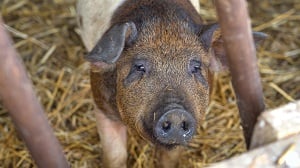 And, he started to experiment with raising animals. First, it was laying chickens and a few sheep. He hoped to have enough eggs to supply the restaurant for brunch. It didn’t quite work out that way.
And, he started to experiment with raising animals. First, it was laying chickens and a few sheep. He hoped to have enough eggs to supply the restaurant for brunch. It didn’t quite work out that way.
“One week before they were to start laying, the coop caught on fire,” he said. Shortly after that, Brown left that restaurant job and started looking for work at the farms he’d made connections with. One eventually gave the city kid with limited farming experience – his father had a horse hobby farm and his mother had extended family who farmed in Virginia — a chance to show what he could do.
“Being around (farming) and seeing it and liking it and then doing it full time are way different,” he said.
Brown proved himself to be capable at this job and a dependable worker, and it wasn’t long until he was working for the farm five days a week. Eventually he also started working at Medina Farmers Market on behalf of the farm.
“That’s where I met everyone, all the friends I’ve made in the industry,” he said, noting that at the time there were a lot of start-up farmers in their early 30s, like him, who were also trying to make their own way in agriculture.
He started raising thousands of chickens for that local farm then eventually, Brown started raising those chickens on his own, along with a few pigs he very randomly ended up raising. He cut out the produce and added livestock to his operation in the meantime, and Gifted Grass was off and running.
He started getting clients to sell the animals he was raising, including friends in his former industry – the restaurant business. Brown would secure a contract with a restaurant and then box up about $100 worth of mixed product and drop it off, with his business card, to other restaurants he’d done research on in the vicinity.
“Going into the spring of 2020 we had built this thing up to 20 restaurants all over the Midwest – Cincinnati, Detroit, Ann Arbor, Cleveland, we were hustling,” he said, referencing the mix of supporters he’s had along the way.
In March 2020, Brown said Gifted Grass had eight hogs, three cattle and 400 chickens a week on the processing schedule, plus batches of ducks and turkeys.
“It felt like it was finally the year that we were really getting ahead and we were really getting traction,” he said. “Then everything shut down. In an evening’s time it was like seven years of my life and all that work disappeared.”
Rather than throw in the towel, he was encouraged to do a hard pivot to direct-to-consumer. He had a lot of product and nowhere for it to go. He had invoices that were going to go unpaid from shuttered restaurants and his own bills to pay.
“It was a mad rush to know what to even sell to home consumers,” he said. For example, consumers want 1-5 pound packages of ground beef, not a whole cow, which was how Gifted Grass was selling to restaurants just days earlier.
“I went from having 20 products to having 200 products,” he said. “I would just drive around everywhere and drop stuff off at people’s doors and they were Venmoing me. We had to set up all this stuff.”
That “on the fly” business model was further tested when all the local processing plants shifted their schedules when the larger meat processors lost production due to COVID-19 illnesses in the summer of 2020. He, like so many others, was left scrambling to get his animals harvested.
Getting through 2020 was hard enough, but 2021 was even more complicated, he said.
“We had a lot of attrition,” he said. “Some customers that thought it was great at the time and said ‘Yeah I want to buy from a local farmer and yeah I want to support sustainable ag, but I also just want to sign up for this traditional subscription service, have it delivered to my door and never have to worry about it.’”
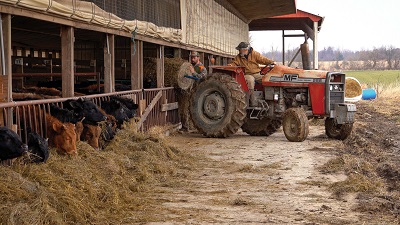
Through it all – before, during and after the pandemic – Brown has had the support of his friend and mentor Jeff Reusser of Royal Fare Farm, who is a Medina County Farm Bureau member.
“Words can’t even describe who Jeff is to me. He’s like a father,” Brown said. “He has been hugely instrumental in (my farm) working. I couldn’t do it without him, really.”
Before the pandemic, when both needed a way for their high-quality products to get in front of consumers, the idea to host private dinners, dubbed Farmer’s Feast, was born. Since May of last year, Farmer’s Feast has evolved and is now housed within The Bottle House Brewery in Cleveland Heights. It’s close to Brown’s dream. He grows what is served and is co-owner with business partner Rasul Welch, but 2022 has brought its own unique set of challenges.
Gifted Grass raised far fewer animals in 2021, and got back a few restaurants. However, this year, the farm lost its biggest contract in Michigan, and as farmers know, inputs are sky high in 2022. Brown noted that he could raise and sell exactly what he did in 2021, and it would cost him $50,000 more.
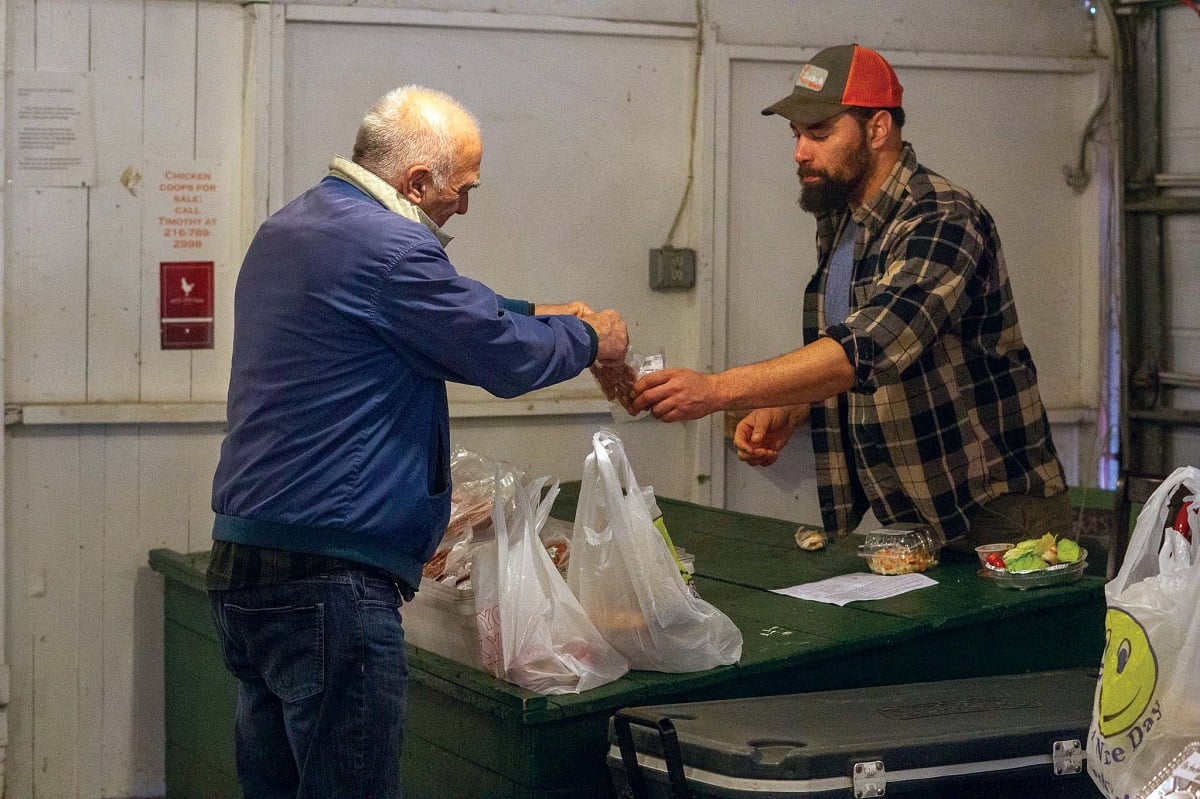
So, he has taken a different approach to direct-to-consumer. Besides Farmer’s Feast, Gifted Grass is now at the Coit Road Farmers Market in Cleveland year-round and has a much bigger social media presence than it had in the past.
“I’ve really done a horrible job of showcasing what it is that I do,” he said. His business was face-to-face, word of mouth and referrals. That worked for years, but a friend has helped him grow his social media platform.
Brown is also working with Food Strong in Cleveland, in conjunction with Coit Road Farmers Market.
“We’re working with nonprofits now, which is also random like everything else in my life, but that is becoming really cool. We’re going into schools and talking to kids about sustainable agriculture.”
Farmer’s Feast and The Bottle House is holding up Coit Road Farmers Market on May 21 as the second oldest farmers market in the country celebrates its 90th anniversary. It’s one more stop on a determined young farmer’s journey to his dream, raising animals in a sustainable way, using ecologically friendly farm practices and having people enjoy the fruits of his labor at his own restaurant.
“I have some very ambitious goals,” he said, with a chuckle at the understatement. “It’s hard to say how it’s all gonna flesh out.”
It’s hard to envision that it won’t flesh out just fine.
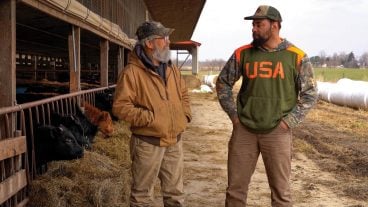
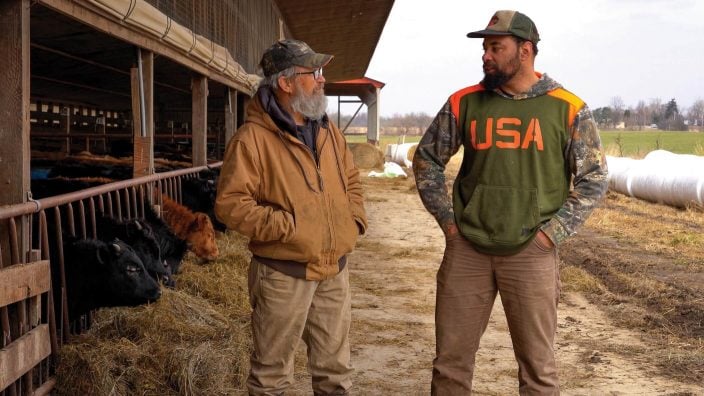
Farmer Colin Brown is in many ways a self-made, one-man band.
Read More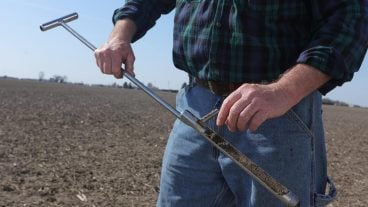
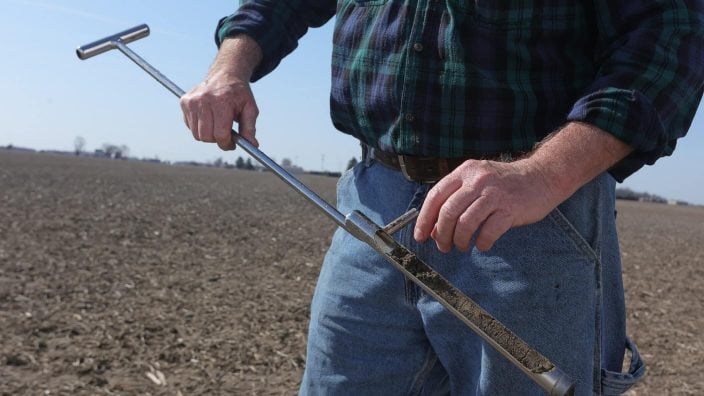
Farmers in Ohio are increasing soil sampling and managing soil nutrients more closely, leading to a gradual decrease in high soil test phosphorus levels that can lead to water quality problems.
Read More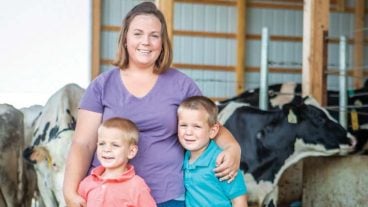
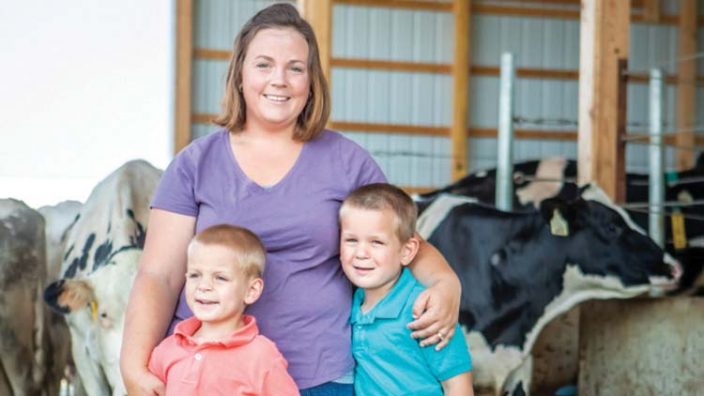
Rose Hartschuh didn’t grow up on a farm, but her children will.
Read More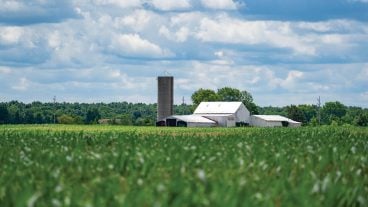
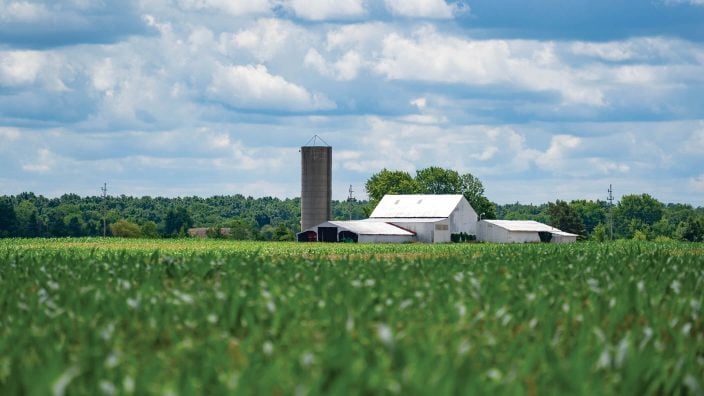
Our collective voices help us protect the future of agriculture and the promise to pass our farms to the next generation.
Read More

It’s crucial to do proper planning – weighing any safety, liability and insurance considerations.
Read More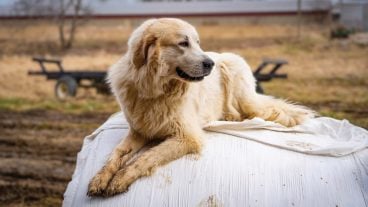
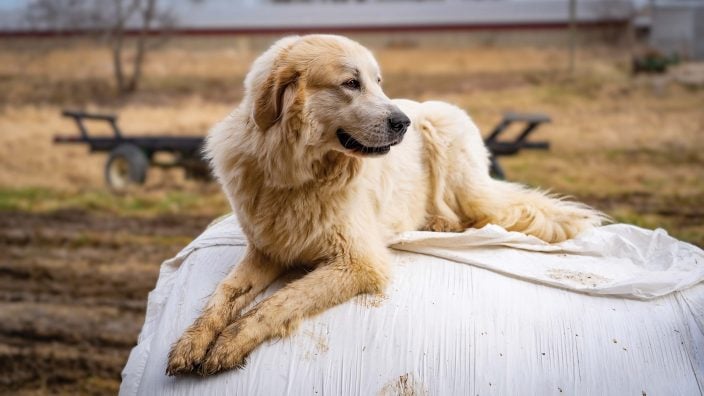
Editor Kelli Stammen shares a preview of the spring magazine, which includes features on soil testing, Gifted Grass Farms, and leadership development.
Read More
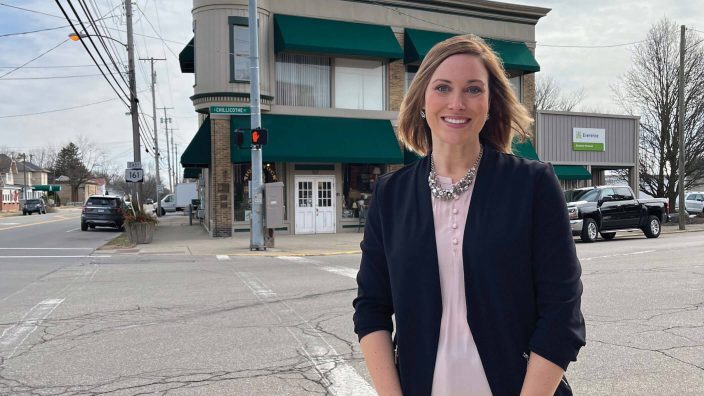
Several Farm Bureau staff and members are found wearing many hats within their towns, counties, school boards and beyond.
Read More
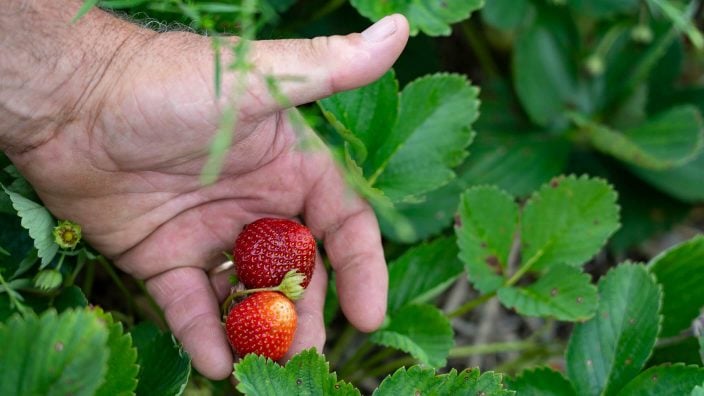
Sharon and Steve Grover have spent the last 30 years raising kids, strawberries and more on their farm in Trumbull County.
Read More